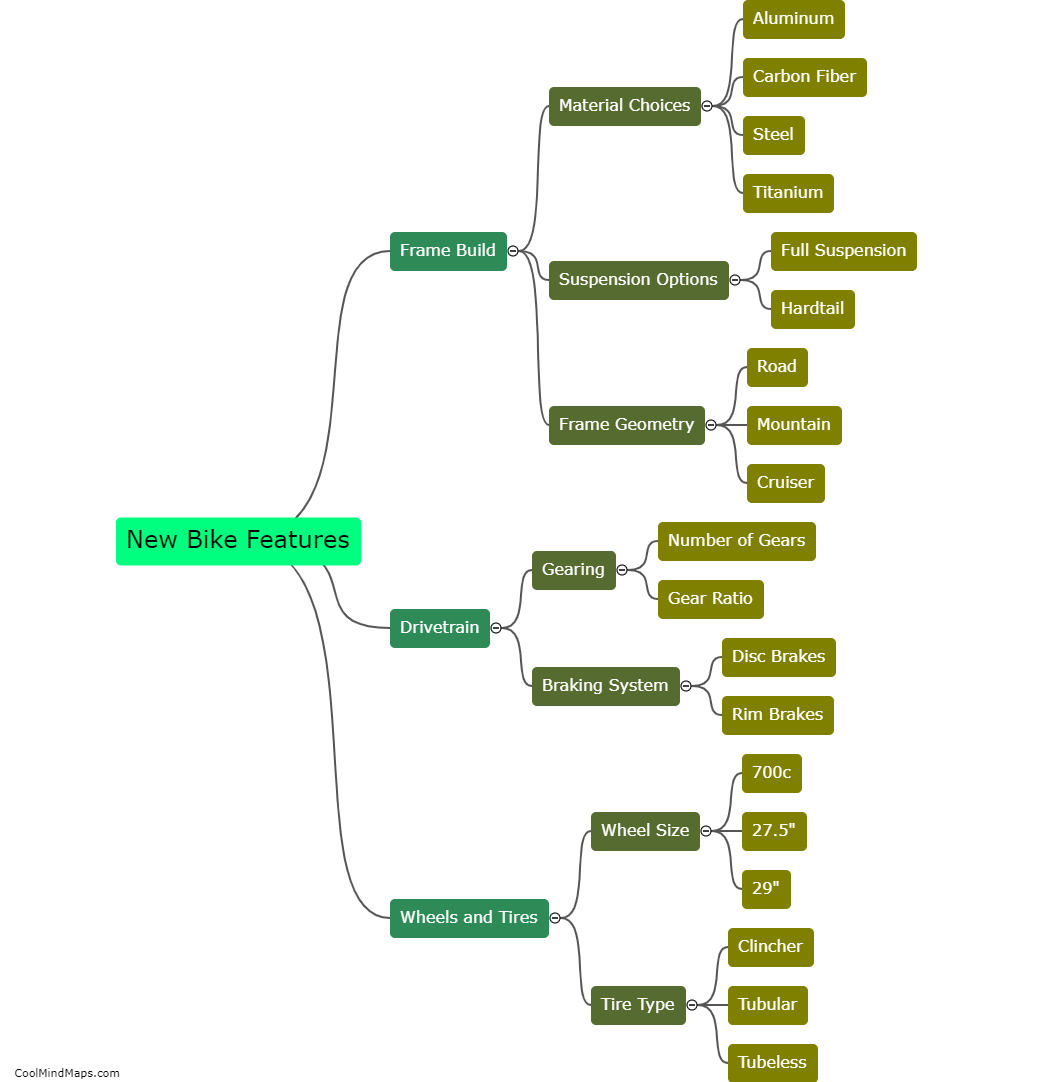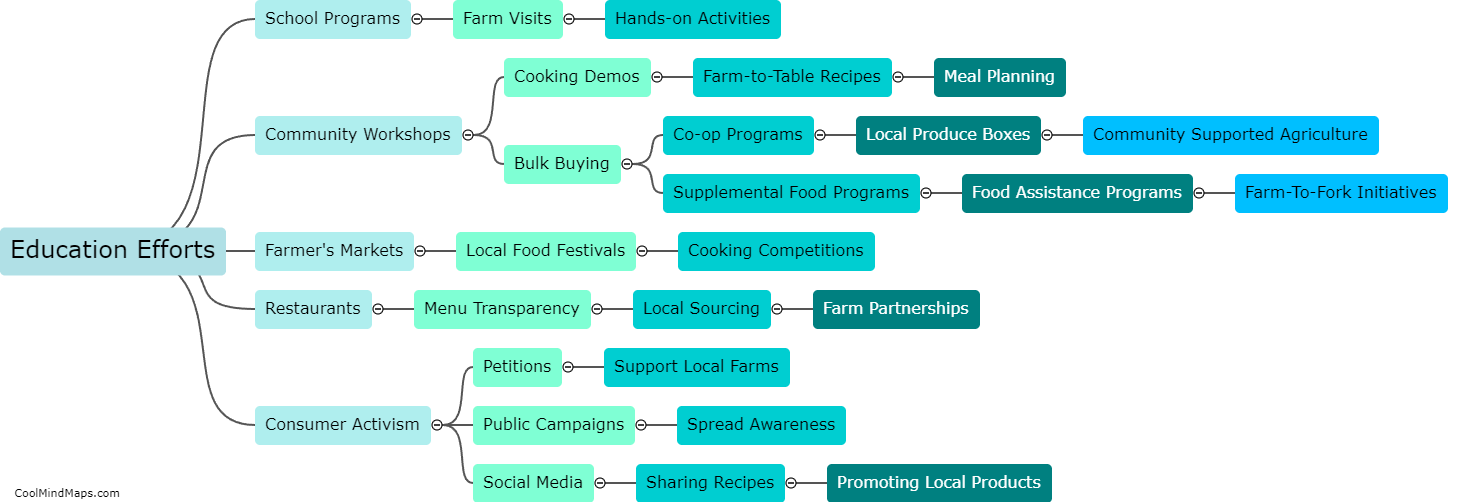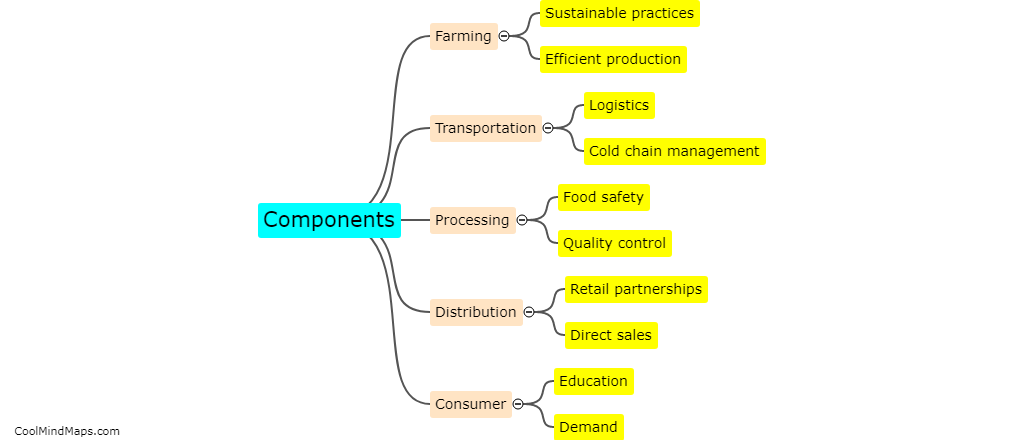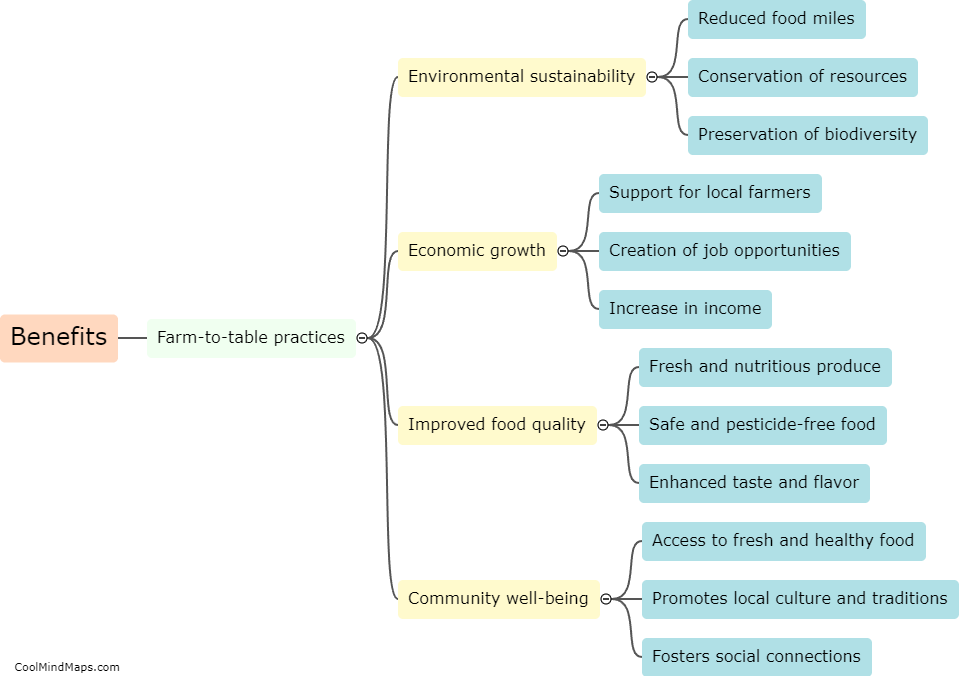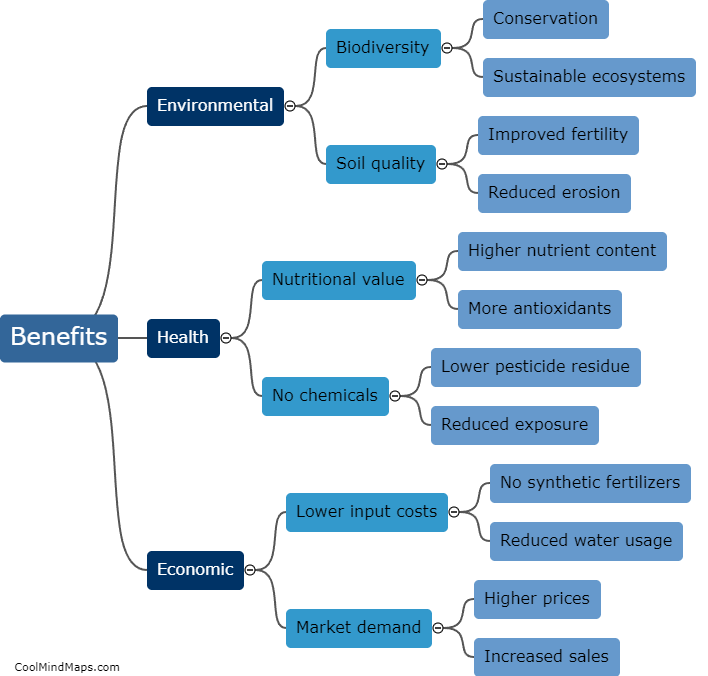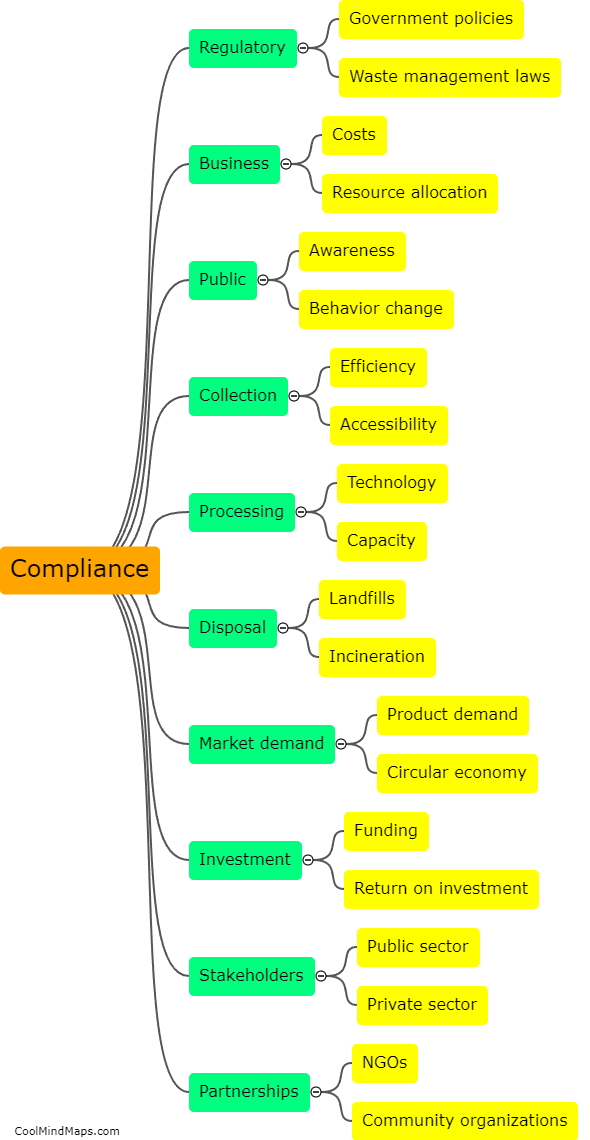What are the benefits of organic farming?
Organic farming offers numerous benefits compared to conventional methods. One major advantage is the absence of synthetic pesticides and fertilizers, which reduces chemical residues in food and preserves soil health. Organic farming practices also prioritize soil conservation and biodiversity, promoting long-term sustainability. The use of natural techniques, such as crop rotation and composting, enhances soil fertility while reducing erosion and water pollution. Notably, organic farming is associated with higher levels of beneficial nutrients in crops, which may contribute to improved human health. Additionally, the welfare of animals is prioritized in organic farming, as they are raised without the use of antibiotics or growth hormones. Overall, organic farming supports a healthier environment, healthier food, and a more ethical approach to agriculture.
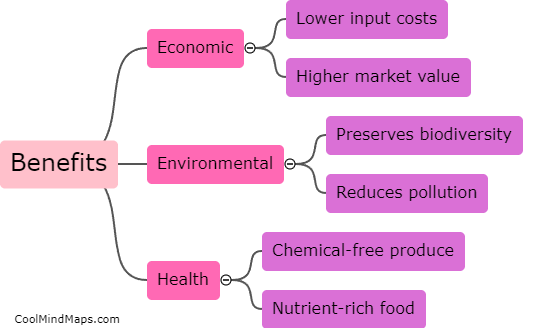
This mind map was published on 2 July 2023 and has been viewed 107 times.

